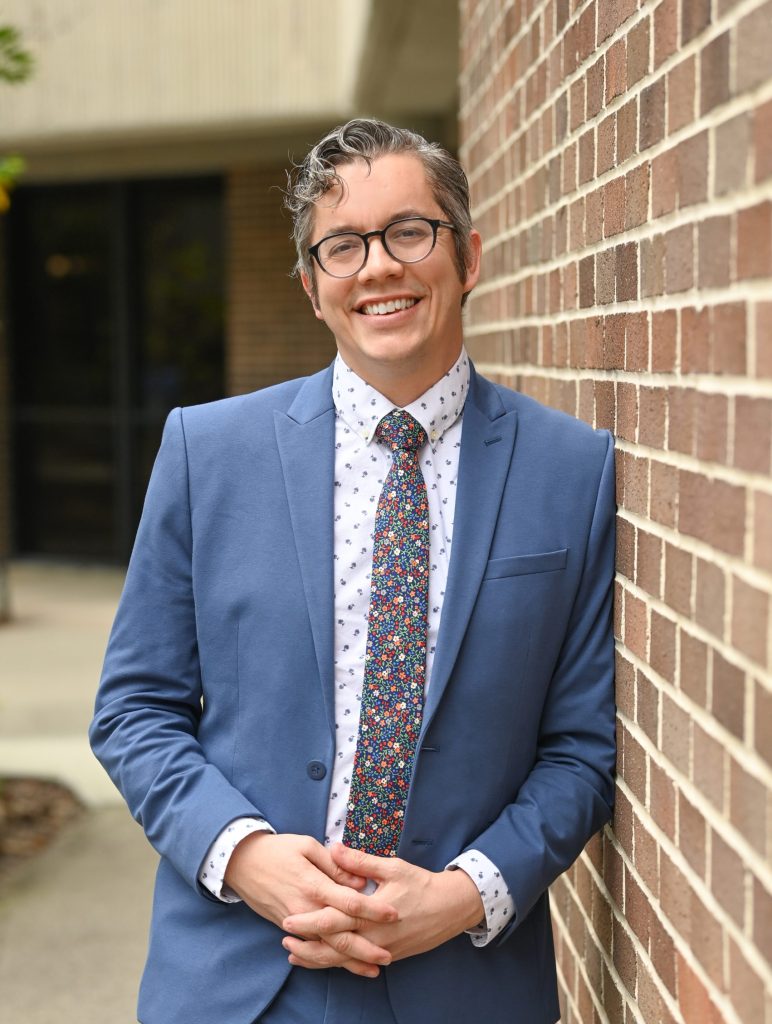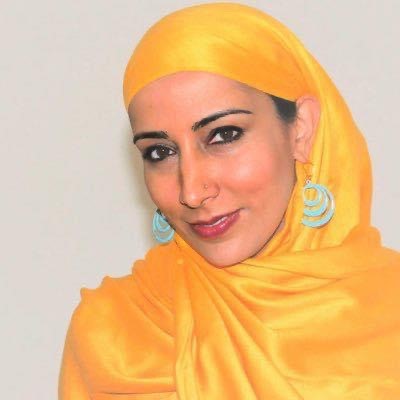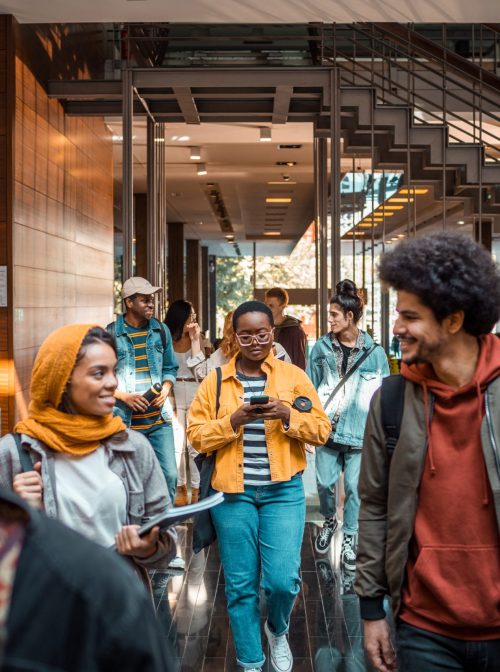Around this time of year, Matt Hartley would be preparing for the University of North Florida’s (UNF) annual “Find Your Folks” fair.
Held on the university’s Jacksonville campus during the first week of the fall semester, the event helps students find organizations that align with their religious — or non-religious — convictions.
As Director of UNF’s Interfaith Center, Hartley said, “it’s a way to welcome hundreds of new students to campus, tell them about our great interfaith work and invite them to get involved.”
But this year, “Find Your Folks” is probably not happening.
“We don’t know if our Center is going to exist,” Hartley said, “so we can’t plan like we normally do.”
The question around whether UNF’s Interfaith Center will still be around comes as a result of SB266, a state law in Florida that prevents colleges and universities from spending state or federal money to promote, support or maintain programs or activities that “advocate for” diversity, equity and inclusion (DEI).
As Deseret News’ Kelsey Dallas reported in March, although the law’s intention primarily focuses on what Governor Ron DeSantis frequently calls “woke” racial ideology, the law will impact centers like UNF’s. It also portends potentially wider ramifications for interfaith efforts on college campuses across the U.S.
Narrowed futures
When SB266 was signed into law in May 2023 to go into effect on July 1 — just seven weeks from the start of the school year — it hit Hartley and his colleagues like a ton of bricks.

“It could mean jobs lost, careers wrecked, and students with the rug pulled out from under them or not being able to find the home they might have on campus,” he said.
With Florida’s Board of Governors still hashing out what the precise implications of the broadly worded law will be at a meeting on August 28, a specter of uncertainty hangs around everything Hartley and the rest of the UNF Interfaith Center leadership are planning for the upcoming academic year, which begins August 21.
Florida’s biggest faculty union — United Faculty Florida (UFF) — said they cannot fully determine the bill’s full impact and implementation as the “law’s vague language and unclear definitions will likely lead to differing interpretation and implementation around the state.”
Nonetheless, they said, it will “cause irreversible harm to Florida’s higher education system,” granting the Board of Governors broad authority to review and possibly revise universities’ existing programs and administrative entities.
Until then, Hartley said the plan is to comply as best as possible and make alternate plans for the interfaith Center’s program, including events like “Coffee and Conversation,” which hosts dialogue around topics like being non-religious at the holidays or growing up Muslim in the South.
“Students see how they belong on campus through these events,” Hartley said, “the harm is that students will be losing part of their home if this programming isn’t available. The campus will feel less like a place where they belong.”
One of those students is Lee Jordan, a sociology major at UNF who has been volunteering with the Interfaith Center for two years. Identifying as Jewish, Jordan said the Center’s programming offered him an opportunity to develop the ability to have conversations about belief that are healthy and productive. It improved his relationship with friends and family from different religious traditions and provided a place on campus where he could be his “full self.”
The idea that the Center could no longer exist has been “tough,” he said. “Until July 1, we had one of the best interfaith centers of any college campus around the country. To see it shut down would be devastating,” Jordan said.
Also fearing for his academic future and wondering whether certain classes will still be offered, Jordan sees SB266 as more than the latest salvo in the “woke” culture wars, but as an attack on the freedom of education.
“It’s an attempt to narrow the potential futures that we can imagine,” said Jordan, “this is not an accident.”
If DEI is under attack, interfaith is under attack.
Both Hartley and Jordan underscored the need for people around the nation — especially those involved in interfaith — to pay attention to what is happening in Florida.
“If DEI is under attack, interfaith is under attack,” Jordan said.
Though much of the current debate over DEI centers on race, gender or sexual orientation, an increasing number of experts have been advocating for including religion in DEI programming as a way to create a larger sense of belonging for customers, employees, students and community members.
Najeeba Syeed, an endowed chair and executive director of Interfaith at Augsburg University, a private college in Minneapolis, Minnesota, affiliated with the Evangelical Lutheran Church in America, said it is essential to include faith as a part of DEI discussions, especially on college campuses.
If it is not, Syeed said, students often feel they are not seen, understood, or heard for the wholeness of who they are.
“And that’s more than a theoretical or ideological issue,” she said, “it manifests in students’ everyday lives, especially students facing multiple forms of marginalization.”
With more than 30 bills across the U.S. targeting DEI initiatives at public colleges — including Arizona, Oregon and Texas — Syeed fears that people who are religiously observant will lose protections and opportunities for conversations across difference.
“Whether people are Christian, Muslim, Jewish, or otherwise. The fear is that they can feel invisible if we remove religious diversity as part of higher education model and structures,” she said.

What to do about it?
Despite her worries, Syeed said the current moment is a time to think about what has worked and what has not with DEI and interfaith programs across the country.
For them to be successful, she said, they have to do more than provide one group protection but “be predicated on the unique needs and definition of the type of community a university is trying to establish.”
Syeed believes universities should involve more stakeholders to commit to a particular DEI vision that is practical enough to evaluate and adjust as campuses continue to change.
Kevin Singer, co-founder of Neighborly Faith, an evangelical organization involved in interfaith activities on college campuses, echoed Syeed, saying, “many public universities and private non-religious colleges remain ill-equipped or unwilling to consider faith alongside other identities as they strive to make campus more inclusive.”
Singer said his organization has seen more success with dropping the “interfaith” label, instead relying on engagements between campus religious organizations like CRU (an evangelical campus group) and Muslim Student Association (MSA) chapters. He believes it’s time for interfaith groups to reimagine their value and function on campuses to welcome a wider swath of students.
Though they feel forced into it, Hartley, Jordan, and others at UNF Interfaith are reimagining their future.
Nevertheless, Hartley said, “it’s an opportunity to connect the campus and community of Jacksonville going forward.” Their idea is to create a community-supported organization that works on campus if university administration and staff are, in the future, unable to explicitly support interfaith activities for students. “It’s a method for survival, but we are going to make the effort,” he said.
Jordan said he feels frustrated but fired up. “We can’t rely on the university anymore,” he said, “we need more grassroot approaches where students and community members empower one another.” In a diverse, plural democracy, Jordan said it is vital for conversations across difference to happen in both formal and informal settings, on campus and off.
He said, “a better world is possible, and we have the power not only to imagine it, but to build it.”
Ken Chitwood is a religion nerd, writer and scholar of global Islam and American religion based in Germany. His work has appeared in Newsweek, Salon, The Los Angeles Times, The Washington Post, The Houston Chronicle, The Chicago Tribune, Religion News Service, Christianity Today, and numerous other publications. Follow Ken on Twitter @kchitwood.





